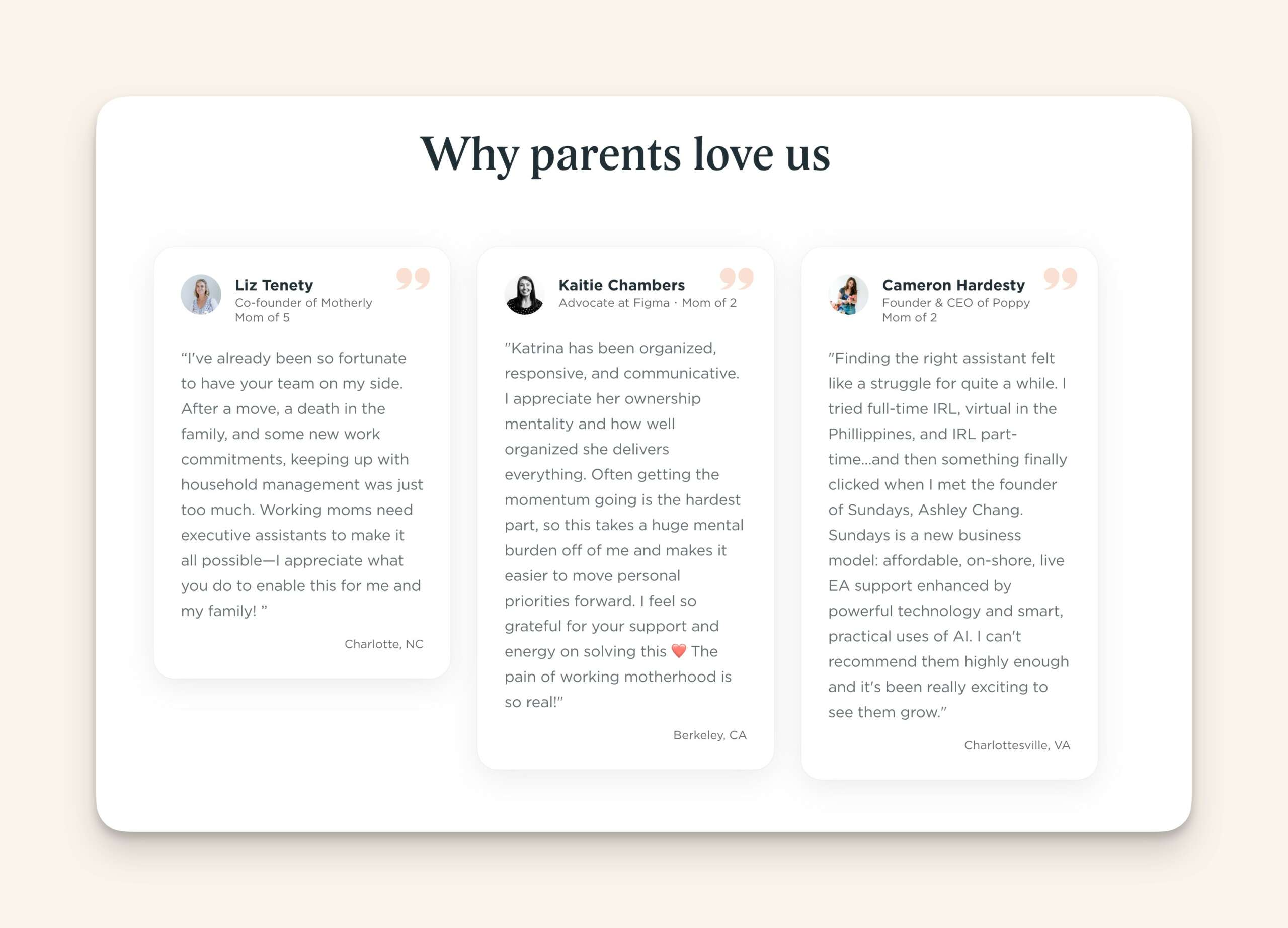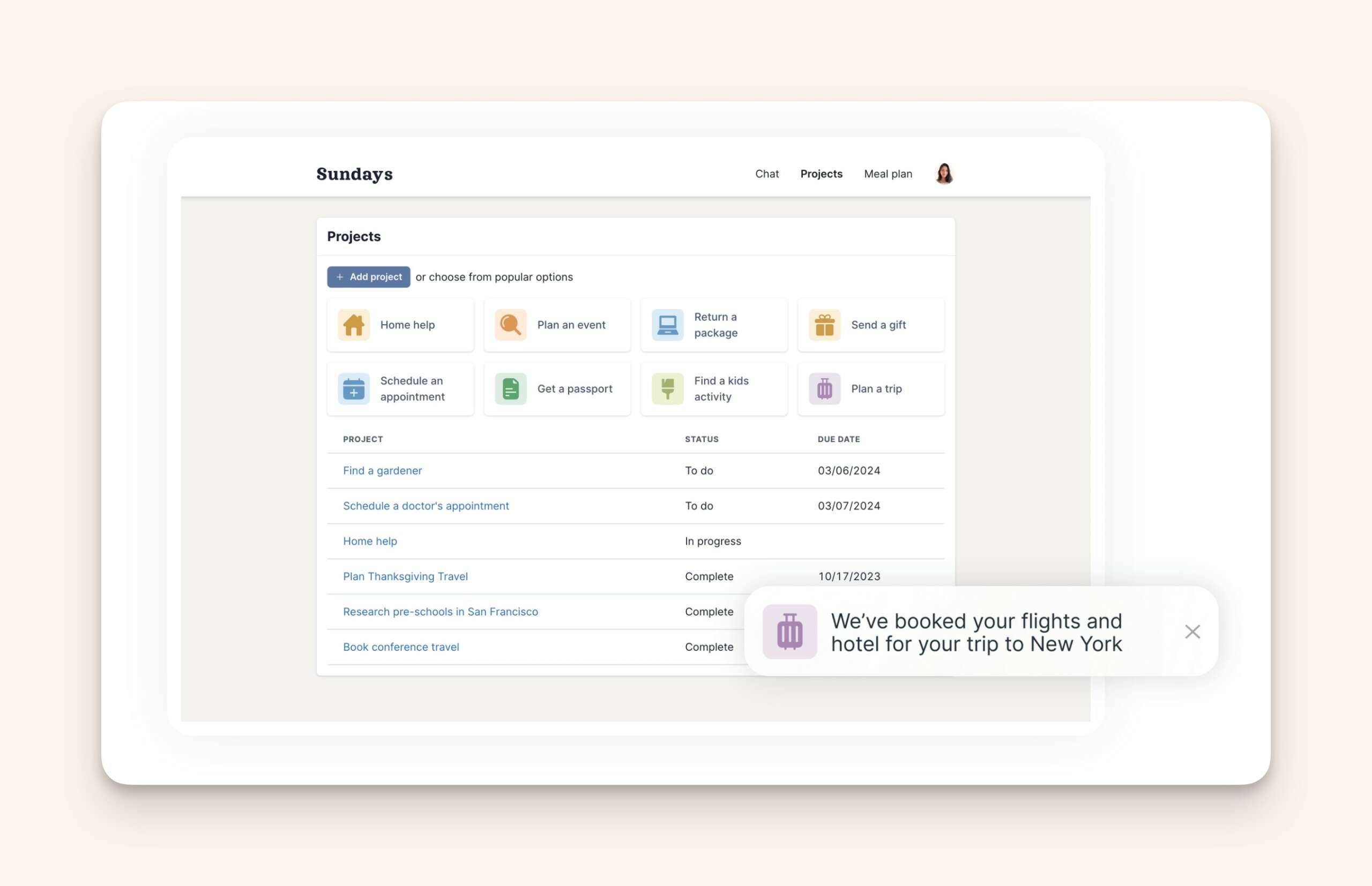We recently connected with Ashley Chang and have shared our conversation below.
Ashley, appreciate you joining us today. How did you come up with the idea for your business?
I came up with the idea for Sundays because of my mom. She was a software engineer in the Bay Area in the 80’s. She had a super promising trajectory to her early career and then as she started having kids she faced the tough decision between investing in her family or choosing to have a career. She decided to focus on family and I’m really, really grateful for all of the time that I got to spend with her growing up. She was super influential for me.
But 20 years later, I entered the tech industry and every company and product is shaped by having very few women in leadership, and even fewer moms. As I’ve gotten older, I’ve seen a lot of the smartest women that I know run into the same problem where they feel like they have to make a choice between career and family.
Technology is so powerful and it feels like this should be a solved problem. I decided I wanted to be someone working towards solving it.
I started interviewing as many parents as I could, I ended up talking to over 300 parents within the first few months of starting Sundays. I was kind of looking for a product problem to solve because that’s what my background has been in. I worked as a product manager for my whole career. So I was looking for a technology to build that would solve this problem. But the more people I talked to, the more I found that this wasn’t really a technology problem. Everyone just needed more time back.
So what we do today is we have a team of executive assistants. They are humans. They are mostly parents, and they all live in the US, so they know what it’s like to raise a family here. We pair each family that we work with an executive assistant who really gets to know them, their goals, and how they think so that they can proactively take off some of the mental load that makes it so hard to have a family and to work.
We have some technology behind our team to help them be the most efficient.
Our goal is to get more moms into leadership so that they can reshape how our businesses run.
Awesome – so before we get into the rest of our questions, can you briefly introduce yourself to our readers.
I’m Ashley. I am the co-founder and CEO of Sundays. Sundays as an executive assistant service for working parents.
My background before Sundays was in the tech industry for over a decade as a product manager at a variety of companies. Most notably, I was the first employee at ReadMe, a developer tool company. Most recently, I was at Carta where I helped build their Venture Capital business line from scratch to over $100 million in revenue.
Sundays we have an executive assistants service that supports parents at home and work. We are a human team, based in the U.S, and made up of mostly parents.
On the family side, we pair each family with one EA to get to know them, their goals, how they think to take off some of the mental and time burden that parents face.
The types of things that we help with fall into what I describe as a pyramid. At the bottom of the pyramid, we have “Life Maintenance”, things like making sure everyone goes to the dentist and your car oil gets changed. Then we look at Stages of Life. We see that for families, often they’re facing things for the very first time but because we help so many families, we see repeated needs across stages. For example, a lot of parents with two-year-olds are looking for preschools, older kids might be getting into more competitive sports, and we help run those processes for them. Then we look at the time of year and help parents really proactively think about what’s coming up – things like spring break or summer planning or getting ready for the holidays. Then we look at recent changes like a new baby that’s joining the family or a big move that’s coming up. Finally, we work with parents on things they request from us. So we have this in-depth model of what we think families need to be successful. We try to help families by proactively suggesting those things so that they don’t have to spend a ton of time pushing things to us. And
One place where we really stand out is the proactivity. A lot of other companies who are building in this space, they’re more like a to-do list. If you think of any task that you do there are a few phases. It starts with conceiving the task, then planning, and then executing. If you’re just a to-do list, you can really only come in at that execution phase. We want to be really, really early on and hopefully, think of these things before you even conceive that you need to. Then we take ownership over them so that they’re truly something that’s off of your plate.
We also cross over to the business side where we help a lot of entrepreneurs or consultants who are running their own businesses. At work we help with things like scheduling, running operational projects, projects, and ideally becoming a strategic partner and everything that they need to be successful. We holistically support them across everything they have going on.
What sets us apart is three things. First, we do this holistic support for families. Second, we’re really, really focused on this human-first approach. And finally, that we have smart technology behind our team, where we help them be as efficient as possible at doing great work.

We often hear about learning lessons – but just as important is unlearning lessons. Have you ever had to unlearn a lesson?
A big lesson I’ve been unlearning is growth at all costs. My background before starting Sundays was at all VC-backed companies. In those companies, the most important thing was always growth.
I live in San Francisco, so a lot of times success is defined not necessarily as building a great company, but by the amount of money that you will are able to fundraise.
It’s been an intentional choice for me to be really thoughtful about the type of company we want to build and what funding is aligned with that.
Before Sundays, I worked in most recently building accounting tools for VC funds. In doing that, I learned a lot about the incentives of VC funds. They have a portfolio strategy, which means that they invest in a bunch of companies, usually 20 or more, per fund. They are able to make really risky investments because they’re hoping that one of those companies will be huge and reach something like $2 billion, and it’s okay with them if the other companies are not successful at all.
It’s a fit for a very specific type of company. But when I think about my own life as a founder, for me personally, I don’t need a billion dollars. I do want to build a sustainable business that does good things in the world, is a great place to work, and supports me and my family.
I’ve had to unlearn a lot of the growth-at-all-cost mindset in order to do that. When you are focusing on growth at all costs, you often sacrifice things like customer experience or employee experience, to make more money.
While we still want to build a really big and impactful company, we don’t want to do that by risking our mission, which is to really truly support families.

Can you tell us about a time you’ve had to pivot?
Right before starring Sundays, my co-founder and I were exploring a very different idea. It was a customer service AI tool. So Sundays was a huge pivot.
Both of us come from an R&D background, he is a software engineer and I was a product manager. We got really excited about building with AI. AI is really good for that right at this point, because it’s so new, even if you have a lot of experience building software products you can get excited about, “Can I create this with AI?”.
We spent a couple of months really focused on building that customer service tool. We were able to get it to work, which was really awesome.
But we were trying to build a business. While we were so focused on building tech first, we hadn’t really taken the time to scope out if it was going to be a good business for us.
There were a lot of things we didn’t do well. We didn’t think about distribution. We were building this and the e-commerce space, and neither of us had any experience in e-commerce. So it was really hard for us to find potential customers. We did find a few people who were excited but our feedback loop was really, really slow.
The other thing about building in the AI space is that it’s a huge benefit to have structured data already. We didn’t have structured data.
The third thing was that we weren’t strategically well-positioned to do this. There are a bunch of other companies that did have great structured data in this area.
So we ended up taking a step back. I’m so glad we did. Ultimately, we decided that we needed to work on something that we really, really cared about because starting a company is so hard. You have to push through a lot of things that are uncomfortable. And if you
don’t really care about the thing that you’re building, it’s going to be really hard to do that.
So when we step back to think more about that, we ended up on this problem of helping families have meaningful careers and families.
Contact Info:
- Website: withsundays.com
- Instagram: https://www.instagram.com/with_sundays
- Linkedin: https://www.linkedin.com/in/ashleymchang/
Image Credits
I own all photos


